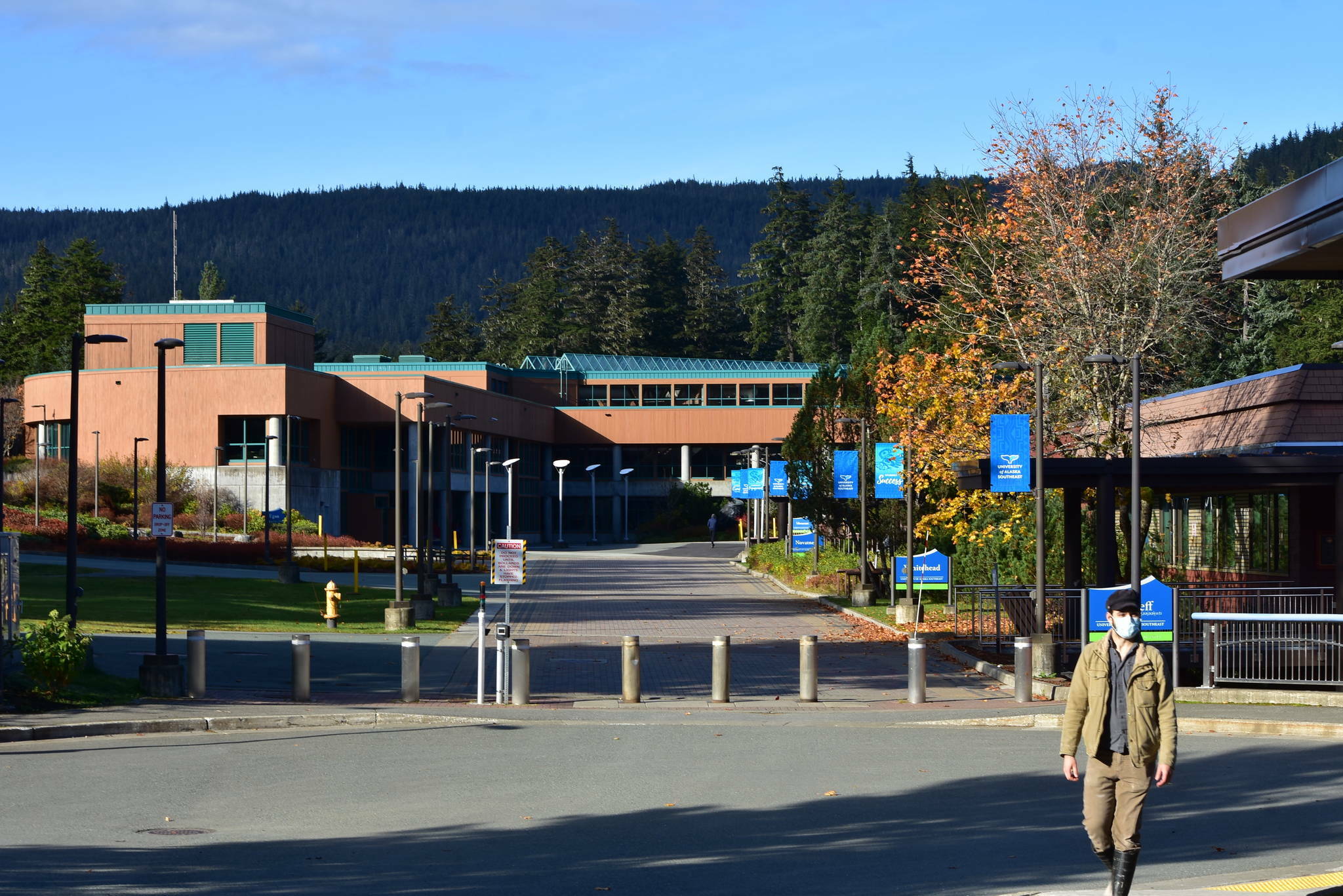The University of Alaska Fairbanks will not be requiring a COVID-19 vaccine at this time, University of Alaska President Pat Pitney announced Monday, but said the school’s status as a federal contractor meant that a mandate was likely coming.
Pitney told reporters during a news conference university officials reviewed the legal, health and logistical requirements of implementing a vaccine requirement for the university and decided against it. But Pitney said they recognized that either through status as a federal contractor or from the U.S. Department of Education there will likely be an eventual requirement for the COVID-19 vaccine.
“I just feel like it’s coming and I want everybody to understand, although we’re not ready at this time, we are putting systems in place,” Pitney said. “We will end up going to a full vaccinated requirement.”
In a letter addressed to the UA community, Pitney said the system was already getting information about targeted federal requirements and it appeared a systemwide mandate would be necessary to maintain federal funding. The university will consider implementation once there is more clarity on the extent and scope of the anticipated requirements, the letter said.
Vaccination rates are already fairly high among faculty, Pitney said, and staff rates were lower but still high. It was the student population where Pitney expected the most difficulty. Pitney strongly encouraged students, staff and faculty to get vaccinated, saying it was the best way to combat the spread of COVID-19.
So far the system has left mitigation policies to the individual campuses, Pitney said, but as the University of Alaska was a single employer, it would be difficult to require vaccines at one university and not another. Pitney couldn’t say when a full mandate could be expected but noted the Occupational Safety and Health Administration announced it would be releasing guidelines soon.
Pitney said there were workers that said they’d quit if a vaccine requirement were implemented, but that didn’t factor into the decision not to mandate vaccines at this time.
“We would see come people choose to find another option, but I think it would be much less than what we hear anecdotally,” Pitney said.
[Then Now: Looking back on pandemic response]
In Southeast
Currently, only residential students at UA Southeast are required to be vaccinated, said Vice-Chancellor Michael Ciri, the school’s COVID-19 incident commander, and the COVID-19 vaccine was recently added to the list of required inoculations.
In addition to the COVID-19 vaccine, residential students at UAS are required to have inoculations for measles, mumps, rubella, diphtheria, tetanus and tuberculosis.
Other students or university employees may be required to be vaccinated if their job or program requires it, Ciri told the Empire in a phone interview Monday, but there was currently no broad vaccine mandate in place at the school. The university does provide exemptions to vaccine mandates for medical or religious reasons, Ciri said, but documentation needs to be provided.
There were currently fewer than 200 residential students at UAS, Ciri, and while there were no testing facilities on campus the university was able to use services in the community.
Both Ciri and Pitney cited Juneau’s high vaccination rate as contributing to UAS’s current low risk for COVID-19. According to the City and Borough of Juneau, 79.6% of the eligible population is fully vaccinated.
According to UAS’ mitigation plan, masking is required on campus and different buildings have different restrictions. Ciri said he wasn’t aware of any positive COVID cases among UAS residential students this semester.
“In Southeast, we have found the community is doing a great job,” Ciri said. “We’ve not had trouble getting people tested should that be necessary.”
• Contact reporter Peter Segall at psegall@juneauempire.com. Follow him on Twitter at @SegallJnuEmpire.

